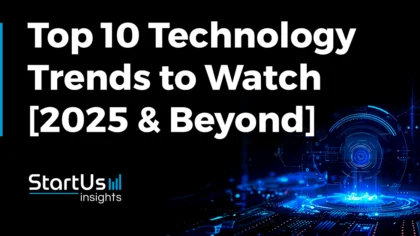The tech industry continues to evolve at a rapid pace, and in 2025, we’re set to see groundbreaking innovations that will impact almost every facet of our daily lives. From artificial intelligence (AI) to quantum computing, advancements in technology are shaping the future of industries, economies, and personal experiences. This article highlights the top tech trends and innovations to watch for in 2025, offering valuable insights into the technologies that are changing the world.
1. Artificial Intelligence and Machine Learning: Expanding Horizons
AI and machine learning (ML) have been game-changers for various industries, and in 2025, their role is only set to expand. These technologies are becoming more advanced and integral to solving complex problems and automating processes.
Key Developments:
-
Generative AI: Tools like ChatGPT and DALL·E are leading the way in generative AI, capable of creating everything from realistic images to written content. In 2025, we can expect even more sophisticated AI models that can generate high-quality, contextually relevant content across diverse domains.
-
AI in Healthcare: AI’s application in healthcare is revolutionizing diagnostics and patient care. In 2025, AI algorithms are predicted to help doctors make more accurate diagnoses, predict diseases, and personalize treatment plans.
-
AI-Powered Automation: Automation will continue to expand, especially in industries like finance, logistics, and customer service. Businesses will leverage AI-driven tools to streamline processes, reduce human error, and increase operational efficiency.
Why It’s Important:
-
Efficiency: AI and ML technologies allow businesses to operate more efficiently, saving time and reducing costs.
-
Innovation: With ongoing advancements, AI is driving innovation in fields like healthcare, entertainment, and even creative arts, enabling entirely new forms of human-computer collaboration.
2. Quantum Computing: Unlocking New Possibilities
Quantum computing is poised to make a significant impact in 2025, moving from theoretical research to practical applications. Quantum computers leverage the principles of quantum mechanics to process information exponentially faster than traditional computers.
Key Developments:
-
Cryptography: Quantum computing is expected to disrupt traditional encryption methods. With its ability to process large amounts of data in seconds, it will revolutionize cybersecurity, creating both new opportunities and challenges in digital security.
-
Drug Discovery and Materials Science: In industries like pharmaceuticals, quantum computers will help simulate molecular structures, drastically speeding up the discovery of new drugs. Similarly, in materials science, quantum computing will enable the development of stronger and more sustainable materials.
-
Optimization Problems: Quantum computers have the potential to solve complex optimization problems in real-time, transforming industries like logistics, finance, and manufacturing by improving supply chain management and resource allocation.
Why It’s Important:
-
Speed and Accuracy: Quantum computing offers the potential to solve problems that are currently intractable for classical computers, such as simulating large biological systems and optimizing large-scale supply chains.
-
Game-Changing Technology: As quantum computing advances, it will create breakthroughs in science, technology, and industry that will shape the future of computing.
3. 5G and Beyond: Revolutionizing Connectivity
The rollout of 5G networks has already begun, and by 2025, it will be fully integrated across many regions. This next-generation technology promises faster speeds, lower latency, and better connectivity, ushering in a new era of digital communication.
Key Developments:
-
Ultra-Fast Speeds: 5G promises speeds up to 100 times faster than 4G, allowing for quicker downloads, smoother streaming, and better real-time communication.
-
IoT Expansion: 5G’s low latency and high bandwidth make it ideal for supporting the Internet of Things (IoT), connecting billions of devices in real-time. This will enhance everything from smart cities to autonomous vehicles.
-
6G Research: Research on 6G has already started, promising even faster speeds and more robust connectivity. By 2025, the groundwork for 6G networks could begin, further expanding the potential of global connectivity.
Why It’s Important:
-
Global Connectivity: 5G technology will connect more devices, offering new opportunities for innovation in healthcare, transportation, and entertainment.
-
Real-Time Communication: 5G will improve experiences for streaming, gaming, and remote work, driving changes in how people interact with technology on a daily basis.
4. Edge Computing: Processing Data Closer to the Source
Edge computing is gaining momentum in 2025 as businesses and tech companies seek faster processing speeds and more efficient use of data. Instead of relying solely on centralized cloud servers, edge computing processes data closer to where it’s generated, reducing latency and improving performance.
Key Developments:
-
IoT and Smart Devices: As more devices become connected, edge computing will allow real-time data processing at the source. This is especially critical for IoT devices, such as smart sensors and autonomous vehicles, which require quick decision-making and minimal delay.
-
Industrial Automation: In industries like manufacturing, edge computing allows real-time data collection from machinery and processes, enabling more effective monitoring and predictive maintenance.
-
Smart Cities: Edge computing will play a key role in smart cities by providing real-time analytics for everything from traffic management to energy usage.
Why It’s Important:
-
Reduced Latency: By processing data closer to the source, edge computing minimizes delays, making it crucial for applications that require real-time decision-making.
-
Efficiency: Edge computing reduces the load on centralized data centers and decreases the amount of data that needs to be transmitted, improving overall network efficiency.
5. Virtual Reality (VR) and Augmented Reality (AR): Redefining User Experiences
In 2025, both VR and AR technologies will become increasingly mainstream, offering immersive experiences that blend the digital and physical worlds. These technologies are set to impact industries such as entertainment, education, and healthcare.
Key Developments:
-
VR in Entertainment: The gaming industry will continue to push the boundaries of immersive experiences with VR. Games, movies, and virtual concerts are becoming more interactive, engaging users in entirely new ways.
-
AR in Retail and E-Commerce: AR will revolutionize the shopping experience, allowing customers to try products virtually before making a purchase. Companies like IKEA and Nike are already using AR to help customers visualize furniture and shoes in their own homes.
-
Healthcare and Training: In healthcare, VR is being used for surgical training and patient rehabilitation, while AR aids doctors in real-time surgery visualization.
Why It’s Important:
-
Engagement: VR and AR offer more interactive and engaging experiences, making them powerful tools for entertainment, training, and shopping.
-
Enhanced Learning: These technologies provide immersive learning experiences, enabling better education and hands-on training in fields like medicine and engineering.
6. Blockchain and Decentralized Finance (DeFi): Reshaping Finance
Blockchain technology and decentralized finance (DeFi) are continuing to disrupt traditional financial systems. In 2025, blockchain is set to move beyond cryptocurrency into broader applications in finance, supply chain, and digital identity.
Key Developments:
-
Smart Contracts: Blockchain’s ability to execute smart contracts without intermediaries is transforming industries like real estate, law, and insurance. These contracts enable automatic execution of terms when certain conditions are met.
-
DeFi Growth: Decentralized finance platforms like Uniswap and Aave allow users to borrow, lend, and trade assets without traditional financial institutions. This democratizes access to financial services and increases transparency.
-
NFTs and Digital Ownership: Non-fungible tokens (NFTs) continue to gain popularity in digital art, gaming, and intellectual property. In 2025, NFTs will expand into new sectors, including music, fashion, and virtual real estate.
Why It’s Important:
-
Financial Inclusion: Blockchain and DeFi are reshaping the financial landscape by offering decentralized, more inclusive financial services.
-
Security and Transparency: Blockchain’s immutability and transparency offer enhanced security for transactions, making it a critical tool for various industries.
Conclusion: The Future of Technology in 2025
As we look ahead to 2025, the top tech trends and innovations promise to reshape industries, enhance human experiences, and solve complex global challenges. From artificial intelligence and quantum computing to blockchain and immersive technologies like VR and AR, these advancements will have a profound impact on how we live, work, and interact with the world. By staying informed and adapting to these trends, businesses and individuals can leverage these technologies to stay competitive and drive innovation in the years to come.

